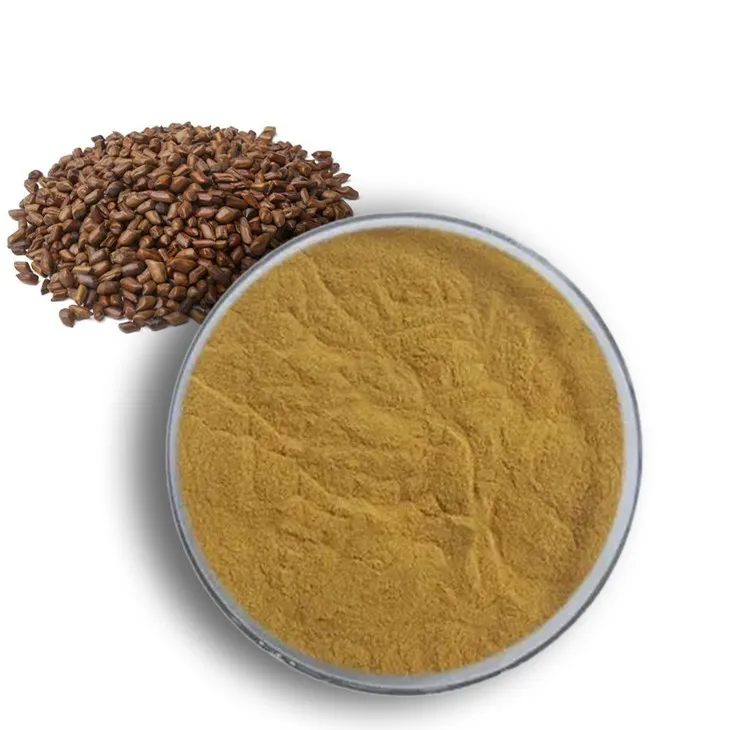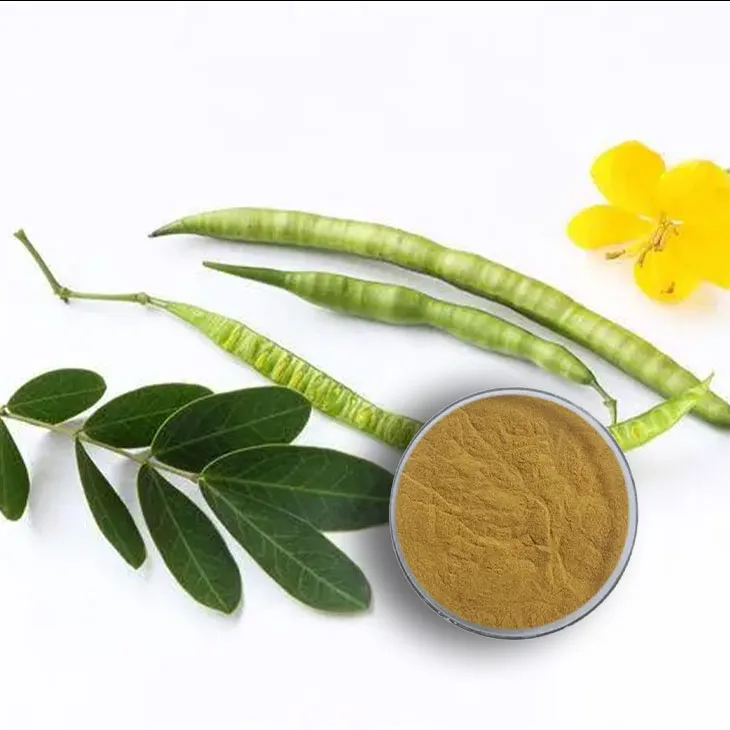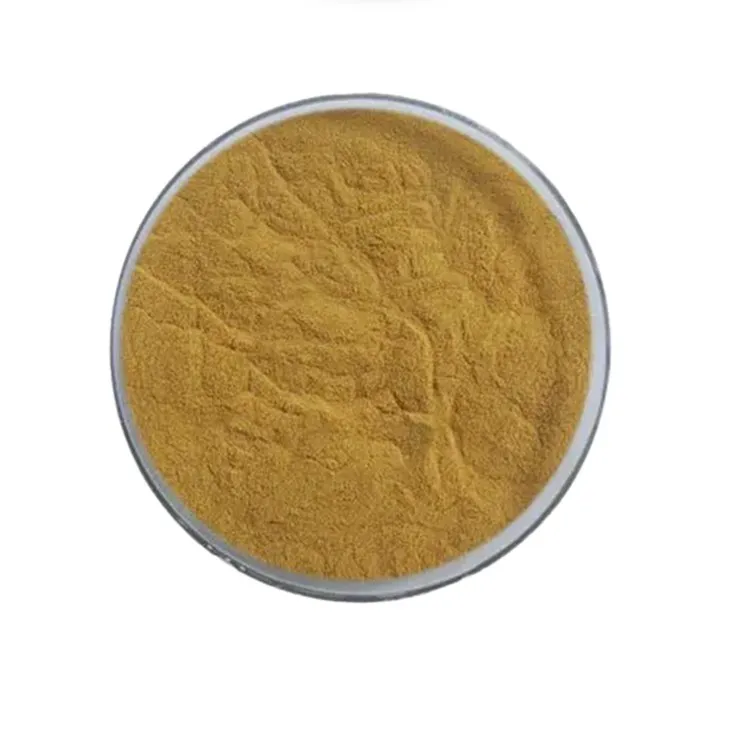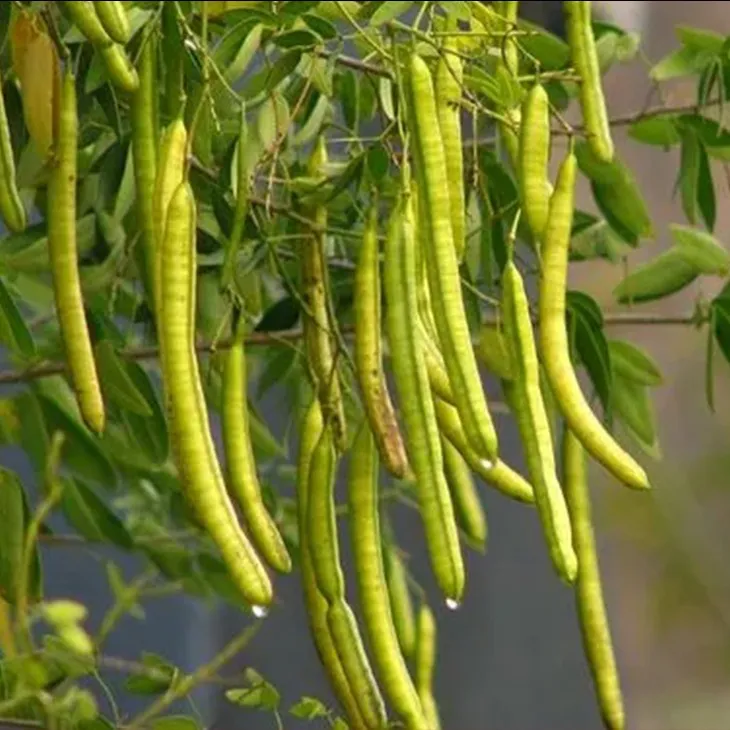- 0086-571-85302990
- sales@greenskybio.com
Cassia seed extract suppliers.
2024-12-01

Introduction
Cassia Seed Extract has found its way into a diverse range of industries, including pharmaceuticals, cosmetics, and food. As its popularity continues to soar, the importance of identifying a trustworthy supplier cannot be overstated. A reliable Cassia Seed Extract supplier is the cornerstone for businesses looking to incorporate this valuable ingredient into their products.

Characteristics of a High - Quality Supplier
Purity and Quality Assurance
Purity and quality are of utmost importance when it comes to Cassia Seed Extract. A top - notch supplier must implement strict quality control measures throughout the extraction process. This journey begins with raw material sourcing. The Cassia seeds used should be of the highest quality, as they are the foundation of the extract. These seeds are rich in active ingredients such as anthraquinones and flavonoids. For example, high - quality Cassia seeds sourced from optimal growing regions are more likely to yield an extract with a higher concentration of these beneficial compounds.
During the extraction process itself, every step needs to be carefully monitored. Any impurities or contaminants can significantly impact the final product's quality. Suppliers should have in - place a comprehensive quality management system that tests for purity at multiple stages. This not only ensures that the extract meets the required standards but also provides consistency in quality, which is crucial for industries relying on Cassia seed extract.
Advanced Extraction Technology
The extraction technology used by a supplier can make a world of difference in the quality of Cassia seed extract. Modern extraction techniques, such as supercritical fluid extraction, have emerged as superior methods compared to traditional ones.
Traditional extraction methods may sometimes lead to the degradation of bioactive components or the inclusion of unwanted substances. In contrast, supercritical fluid extraction uses a fluid at a supercritical state, which has properties between those of a gas and a liquid. This allows for more precise and gentle extraction of the bioactive components from Cassia seeds. It can preserve the bioactive components more effectively, such as the anthraquinones and flavonoids. As a result, the extract obtained through advanced extraction techniques is not only of higher quality but also exhibits greater efficacy in various applications.
In the pharmaceutical industry, for instance, a more pure and bioactive - rich Cassia seed extract can have enhanced medicinal properties. In the cosmetic industry, it can offer better skin - nourishing and anti - aging effects. And in the food industry, it can contribute to the development of healthier and more functional food products.
Regulatory Compliance
For Cassia seed extract suppliers, compliance with relevant regulations is non - negotiable. Different industries have different regulatory requirements, and suppliers need to be well - versed in and adhere to these rules.
In the pharmaceutical industry, strict safety and quality regulations are in place. Suppliers must follow Good Manufacturing Practice (GMP) guidelines. These guidelines cover everything from the cleanliness of the manufacturing facilities to the proper documentation of the extraction process. By following GMP, suppliers can ensure that their Cassia seed extract meets the highest standards for human consumption or use in pharmaceutical products. This not only protects the end - users but also safeguards the reputation of the pharmaceutical companies using the extract.
In the cosmetic industry, there are regulations regarding the safety of ingredients and the claims made about products. Cassia seed extract suppliers need to ensure that their extract complies with these regulations to avoid any legal issues. Similarly, in the food industry, there are strict food safety and labeling regulations. Suppliers must provide accurate information about the Cassia seed extract, such as its composition and potential allergens, to ensure consumer safety.
Technical Support and Documentation
A good Cassia seed extract supplier should be able to offer reliable technical support and comprehensive documentation. This is essential for customers who are incorporating the extract into their own products.
Regarding technical support, suppliers should be able to answer any questions that customers may have about the extract. For example, they should be able to provide advice on the optimal usage levels of the extract in different applications. They can also offer assistance in formulating products with Cassia seed extract to ensure its stability and efficacy.
Documentation is equally important. Suppliers should provide detailed information about the composition of the extract, including the types and concentrations of the active ingredients. They should also describe the properties of the extract, such as its solubility, color, and odor. Additionally, information about the potential applications of the extract should be available. This helps customers make informed decisions about using the Cassia seed extract in their products. For example, a food manufacturer considering using Cassia seed extract in a new product line can refer to the supplier's documentation to understand its potential health benefits and any limitations in its use.

Finding the Right Supplier
When looking for a Cassia seed extract supplier, there are several steps that businesses can take to ensure they find the right one.
Research and Reputation
1. Conduct in - depth research: Start by researching different suppliers online. Look for companies that have a well - established presence in the industry. Check their websites for information about their extraction processes, quality control measures, and compliance with regulations.
2. Check reputation: Reputation is a key factor. Look for customer reviews and testimonials. A supplier with a good reputation is more likely to provide high - quality products and reliable service. You can also ask for references from the supplier and contact their existing customers to get first - hand feedback.
Quality Certifications
3. Verify quality certifications: Look for suppliers that have relevant quality certifications. For example, in the pharmaceutical industry, a GMP certification is highly desirable. In the food industry, certifications such as ISO 22000 (Food Safety Management System) can indicate that the supplier adheres to strict food safety standards. These certifications are evidence that the supplier has met certain quality and safety requirements.
Sampling and Testing
4. Request samples: Before making a large - scale purchase, request samples from potential suppliers. This allows you to test the quality of the Cassia seed extract yourself. You can conduct in - house tests or send the samples to a third - party laboratory for analysis. This will help you determine if the extract meets your quality requirements.
5. Compare prices: While price should not be the sole determining factor, it is still an important consideration. Compare the prices offered by different suppliers. However, be cautious of suppliers offering extremely low prices, as this could be an indication of lower quality products or non - compliant extraction processes.

Conclusion
In conclusion, finding a reliable Cassia seed extract supplier is a crucial step for businesses in various industries. A high - quality supplier should ensure the purity and quality of the extract, use advanced extraction technology, be compliant with regulations, and provide technical support and documentation. By following the steps outlined above for finding the right supplier, businesses can make an informed decision and ensure that they are getting a high - quality Cassia seed extract that meets their specific needs.

FAQ:
What are the main factors to consider when choosing a Cassia seed extract supplier?
When choosing a Cassia seed extract supplier, several main factors should be considered. Firstly, the purity and quality of the extract are crucial. This requires the supplier to have strict quality control during the extraction process, starting from raw material selection. Secondly, advanced extraction technology is important. Modern techniques can better preserve the bioactive components. Thirdly, compliance with relevant regulations, like GMP in the pharmaceutical industry, is necessary. Also, the ability to provide reliable technical support and documentation is a key factor.
How can a supplier ensure the purity of Cassia seed extract?
A supplier can ensure the purity of Cassia seed extract through strict quality control measures throughout the extraction process. This includes sourcing high - quality Cassia seeds rich in active ingredients like anthraquinones and flavonoids as raw materials. During the extraction, they should use proper methods and techniques to avoid contamination and ensure that only the desired components are extracted, resulting in a pure extract.
What is the significance of advanced extraction technology for Cassia seed extract suppliers?
The significance of advanced extraction technology for Cassia seed extract suppliers is multi - fold. For example, modern extraction techniques such as supercritical fluid extraction can preserve the bioactive components of Cassia seed extract more effectively compared to traditional methods. This not only improves the quality of the extract but also enhances its efficacy in various applications in the pharmaceutical, cosmetic, and food industries.
Why is regulatory compliance important for Cassia seed extract suppliers?
Regulatory compliance is important for Cassia seed extract suppliers because it ensures the safety and quality of the extract. In the pharmaceutical industry, for instance, strict regulatory compliance regarding safety and quality is essential. Suppliers need to follow Good Manufacturing Practice (GMP) guidelines to make sure that their Cassia seed extract meets the highest standards for human consumption or use in pharmaceutical products. Non - compliance may lead to legal issues and endanger the health of consumers.
What kind of technical support and documentation should a Cassia seed extract supplier provide?
A Cassia seed extract supplier should provide various types of technical support and documentation. They should offer information on the composition of the extract, including the types and amounts of active ingredients. Properties of the extract such as solubility, stability, etc., should also be provided. Additionally, potential applications in different industries like pharmaceutical, cosmetic, and food should be detailed. This helps customers make informed decisions about using the extract in their products.
Related literature
- Title: The Quality Control of Cassia Seed Extract in the Modern Pharmaceutical Industry"
- Title: "Advanced Extraction Technologies for Botanical Extracts: Focus on Cassia Seed"
- Title: "Regulatory Requirements for Cassia Seed Extract Suppliers in the Cosmetic Field"
- ▶ Hesperidin
- ▶ citrus bioflavonoids
- ▶ plant extract
- ▶ lycopene
- ▶ Diosmin
- ▶ Grape seed extract
- ▶ Sea buckthorn Juice Powder
- ▶ Beetroot powder
- ▶ Hops Extract
- ▶ Artichoke Extract
- ▶ Reishi mushroom extract
- ▶ Astaxanthin
- ▶ Green Tea Extract
- ▶ Curcumin Extract
- ▶ Horse Chestnut Extract
- ▶ Other Problems
- ▶ Boswellia Serrata Extract
- ▶ Resveratrol Extract
- ▶ Marigold Extract
- ▶ Grape Leaf Extract
- ▶ blog3
- ▶ blog4
-
The best lemon juice powder in nature.
2024-12-01
-
Organic Vitamin K2 Powder Suppliers
2024-12-01
-
Bulk purchase of L - tyrosine.
2024-12-01
-
Vitamin K2 Manufacturers
2024-12-01
-
100% Pure Natural Rutin.
2024-12-01
-
Chinese Citrus Bioflavonoid Suppliers.
2024-12-01
-
Angelica sinensis extract
2024-12-01
-
Reishi mushroom extract
2024-12-01
-
Lemon Juice Powder
2024-12-01
-
Alisma Extract
2024-12-01
-
Troxerutin
2024-12-01
-
Konjac Powder
2024-12-01
-
Agaricus Blazei Extract
2024-12-01
-
Coix Seed Extract
2024-12-01
-
Andrographis Paniculata Extract Powder
2024-12-01
-
Diosmin
2024-12-01





















